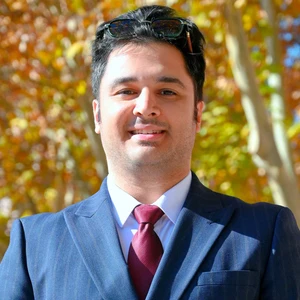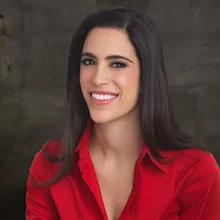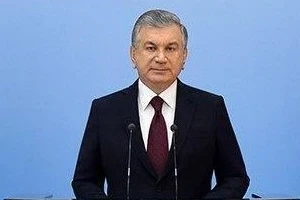After the visit of US Vice President JD Vance, the South Caucasus is being rewired
 By Vasif HUSEYNOV, PhD, Head of Department, AIR Center, Adjunct Lecturer, ADA and Khazar Universities, Baku By Vasif HUSEYNOV, PhD, Head of Department, AIR Center, Adjunct Lecturer, ADA and Khazar Universities, Baku
U.S. Vice President J.D. Vance’s February 9–11 visit to Armenia and Azerbaijan marked a structural turning point in the South Caucasus. Unlike previous high-level engagements of the United States that generated rhetorical alignment but limited follow-through, this visit embedded the region into long-term American economic, technological, and strategic frameworks. Taking place on the heels of the latest agreement (January 14) between Washington and Yerevan on the implementation framework for the Trump Route for International Peace and Prosperity (TRIPP), the visit served to consolidate the American influence in the region and taking it to higher levels. The consequences are unfolding along two axes: domestically, within Armenia and Azerbaijan’s political economies; and geopolitically, in the region’s recalibrating balance between the United States and Russia, with Georgia seeking entry into the new configuration. READ MORE
- Wednesday, 25 February 2026, 04:08
Zangezur Energy Corridor Enhancing Regional Energy Connectivity  By Vusal GULIYEV, Leading Advisor at the Baku-based Center of Analysis of International Relations (AIR Center) By Vusal GULIYEV, Leading Advisor at the Baku-based Center of Analysis of International Relations (AIR Center)
On January 29, construction formally commenced on a new high-voltage transmission system led by Azer Enerji. The project, known as the “Zangezur Energy Corridor,” will integrate Azerbaijan’s Nakhichevan Autonomous Republic into Baku’s national power grid via the Trump Route for International Peace and Prosperity (TRIPP), also known as the Zangezur Corridor. The project will also establish the technical foundations for a future Azerbaijan–Türkiye–Europe electricity corridor. This initiative is one part of Baku’s push to strengthen its role in transregional electricity connectivity, which favours corridor development over isolated infrastructure investment. The launch of the Zangezur Energy Corridor positions Azerbaijan as a regional electricity hub linking Asia and Europe. READ MORE
- Wednesday, 25 February 2026, 04:07
Watching TRIPP: China and the art of strategic patience  By Yeghia TASHJIAN, Beirut-based regional analyst and researcher, columnist, "The Armenian Weekly” By Yeghia TASHJIAN, Beirut-based regional analyst and researcher, columnist, "The Armenian Weekly”
China’s position on the TRIPP (Trump’s Route for International Peace and Prosperity) has been cautious and low-profile, shaped less by enthusiasm for the project itself than by Beijing’s overall policy toward the South Caucasus and the region’s geopolitical rivalries. From China’s perspective, TRIPP is not mutually exclusive with the Belt and Road Initiative (BRI). From the U.S. perspective, however, the project carries geopolitical weight, aimed at containing or counterbalancing Russian, Iranian and Chinese influence in Eurasia.
China has evaluated TRIPP primarily through the lens of risk management, given that the route traverses border regions historically vulnerable to conflict and border tensions and lies at the intersection of regional rivalries. This helps explain why Beijing has avoided any public endorsement, opting instead for rhetorical neutrality and a wait-and-see approach — signalling that economic connectivity must be inclusive, territorial integrity respected, trade depoliticized and cooperation insulated from zero-sum geopolitical competition.
READ MORE
- Wednesday, 18 February 2026, 05:04
Armenia in 2026: What Is Next?  By Benyamin POGHOSYAN, PhD, Senior Research Fellow at the APRI Armenia By Benyamin POGHOSYAN, PhD, Senior Research Fellow at the APRI Armenia
Armenia’s pivotal 2026 looms: a year that will test fragile peace efforts with Azerbaijan and Turkey, redefine Yerevan’s ties with the EU and Russia, and unfold amid deepening political and societal polarization.
The year 2026 could be crucial for Armenia, significantly influencing both the foreign and domestic policy trajectory of the country. Externally, the main developments to monitor are the Armenia–Azerbaijan and Armenia–Turkey normalization processes. Will the August 2025 Washington Declaration bring the restoration of all regional communications – including the opening of the Armenia-Turkey border and the signature of an Armenia-Azerbaijan peace agreement – or will it meet the fate of previous, unsuccessful attempts to establish lasting peace and security in the South Caucasus? READ MORE
- Monday, 22 December 2025, 08:31
Leveraging Taiwan: India’s strategic counterbalance to China  By Shanthie Mariet D’SOUZA, PhD, founder & president, Mantraya Institute for Strategic Studies (MISS) By Shanthie Mariet D’SOUZA, PhD, founder & president, Mantraya Institute for Strategic Studies (MISS)
Record trade and closer ties with Taipei mark New Delhi’s shift from caution to assertiveness.
In 2024, for the first time ever, bilateral trade between India and Taiwan exceeded US$10 billion. And in the past six months alone, governments and businesses in the two countries have agreed on multipledeals that bring their semiconductor, tech, artificial intelligence, and industrial sectors even closer together, along with supply chains. These new trade partnerships support Taiwan’s “New Southbound Policy” and India’s “Act East” and “Make in India” policies, with Taiwan alone investing US$4.5 billion in India since February 2024. While the surge in Taiwanese investment in Indian companies is grounded in the economic dimension of the relationship, there is another dynamic taking place. Like most countries, New Delhi does not officially recognise Taipei. Yet its compliance with the “One China principle” – the condition set by Beijing that nations must diplomatically acknowledge there is only one Chinese government and must not establish official contacts with Taiwan – has become more nuanced. READ MORE
- Monday, 22 December 2025, 08:30
Israel War Erodes Iran’s Relations with Azerbaijan
 By Fuad Shahbazov, Baku-based independent regional security and defence analyst By Fuad Shahbazov, Baku-based independent regional security and defence analyst
The 12-day Israel-Iran war revealed new vulnerabilities in the Islamic Republic and increased tensions between Iran and its neighbour, Azerbaijan. In the aftermath of the strategic setback to Iranian nuclear and military facilities, Iran’s conservative political and security establishment began shifting focus toward perceived “close enemies” said to be complicit in the Israeli attacks. Among the primary targets of this narrative has been Iran’s northern neighbor, Azerbaijan, which Iranian state-run media and channels affiliated with the Islamic Revolutionary Guard Corps (IRGC) accused of providing “intelligence support to Israel” during the strikes on nuclear, military, and civilian sites. While Azerbaijani officials categorically denied any involvement in Israeli military operations and the Iranian government did not present concrete evidence supporting its claims, the media campaign renewed tensions between Tehran and Baku, undermining a period of cautious diplomatic stability that had followed earlier disputes over Armenia and other issues. Indeed, the Iranian criticism of a growing Azerbaijan-Israel alliance is not a new phenomenon and Azerbaijan’s ties with Israel have long been a source of discontent in Azerbaijan-Iran relations. READ MORE
- Thursday, 31 July 2025, 12:19
Armenia and Azerbaijan have taken a new route in their quest for peace

 By Benyamin POGHOSYAN, PhD, Senior Research Fellow at the APRI Armenia
By Benyamin POGHOSYAN, PhD, Senior Research Fellow at the APRI Armenia
Lara SETRAKIAN, President, APRI Armenia
Political scientists and wider civil society from Armenia and Azerbaijan don’t often see eye to eye. After decades of war between the two countries their grievances run deep, with each side blaming the other for continued rounds of conflict. But experts in Yerevan and Baku can now agree on one thing: the meeting held in Abu Dhabi on July 10 between their heads of government was a moment of respite for the South Caucasus. After months without a major meeting between the two sides (the leaders met briefly at the margins of the European Political Community summit in Tirana in May), Abu Dhabi was able to host their most comprehensive gathering in known history, attended by representatives who cover all key aspects of the Armenia-Azerbaijan peace process. Still, expectations should be managed. The two sides may yet be very far from signing a peace agreement, though a draft was announced earlier this year. There are thorny issues, like border demarcation, that remain unresolved. And there are competing visions for how the future of transport links should evolve. Nonetheless, the Abu Dhabi meeting has revived the diplomatic track, giving new hope for peace and stability, while calming fears of an imminent outbreak of war.
READ MORE
- Thursday, 31 July 2025, 07:56
The Multidimensional Foreign Policy of New Uzbekistan  Bakhram Sotiboldiev,
Bakhram Sotiboldiev,
Head of the Department of the Institute for Strategic and Regional Studies under the President of the Republic of Uzbekistan
In today's rapidly changing world, Uzbekistan confidently positions itself as one of the key players on the international stage. The country’s foreign policy, reinvigorated with the election of Shavkat Mirziyoyev as President in 2016, demonstrates impressive results, transforming the republic into a significant center for regional and global diplomacy. READ MORE
- Monday, 16 December 2024, 08:56
|
|